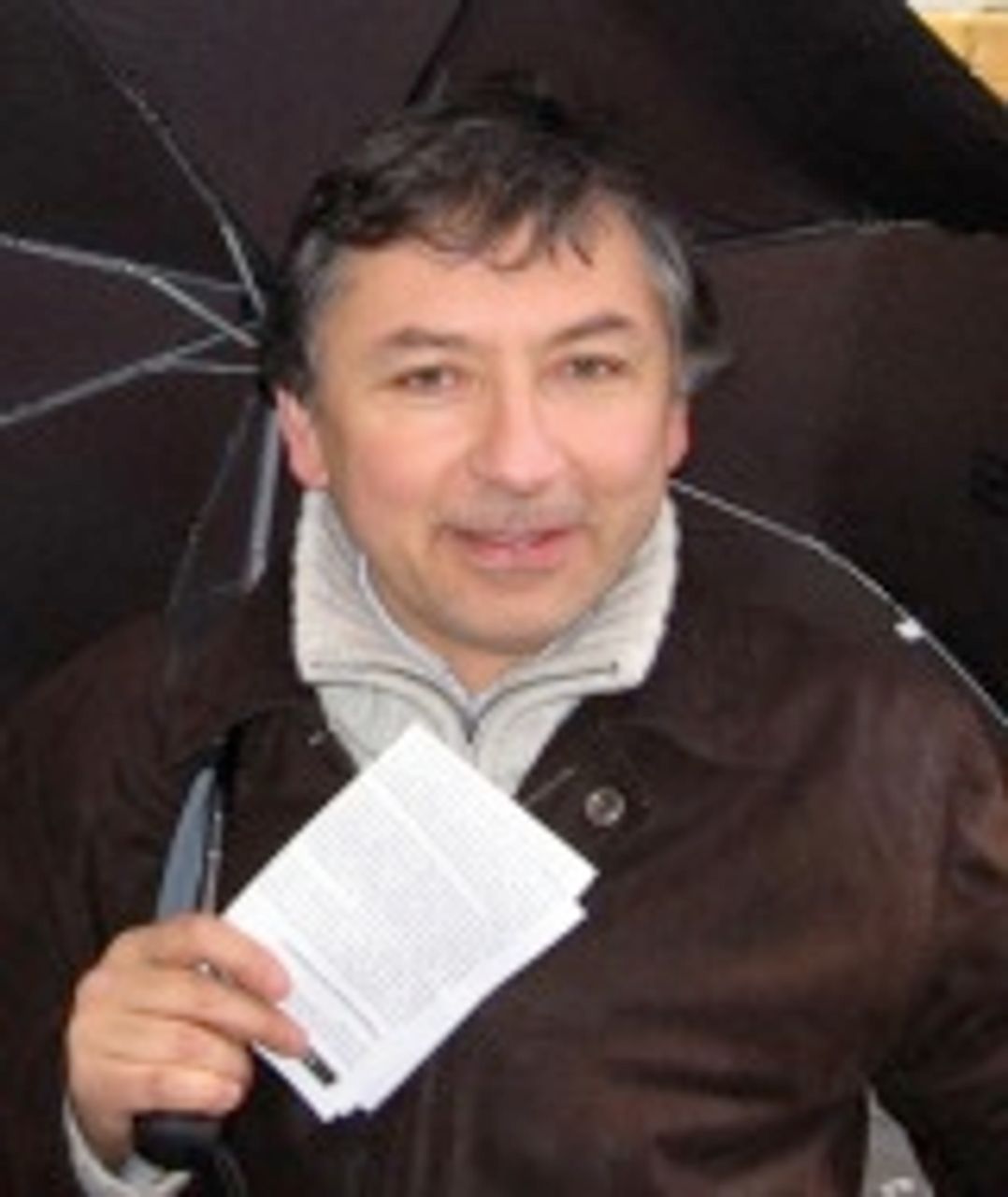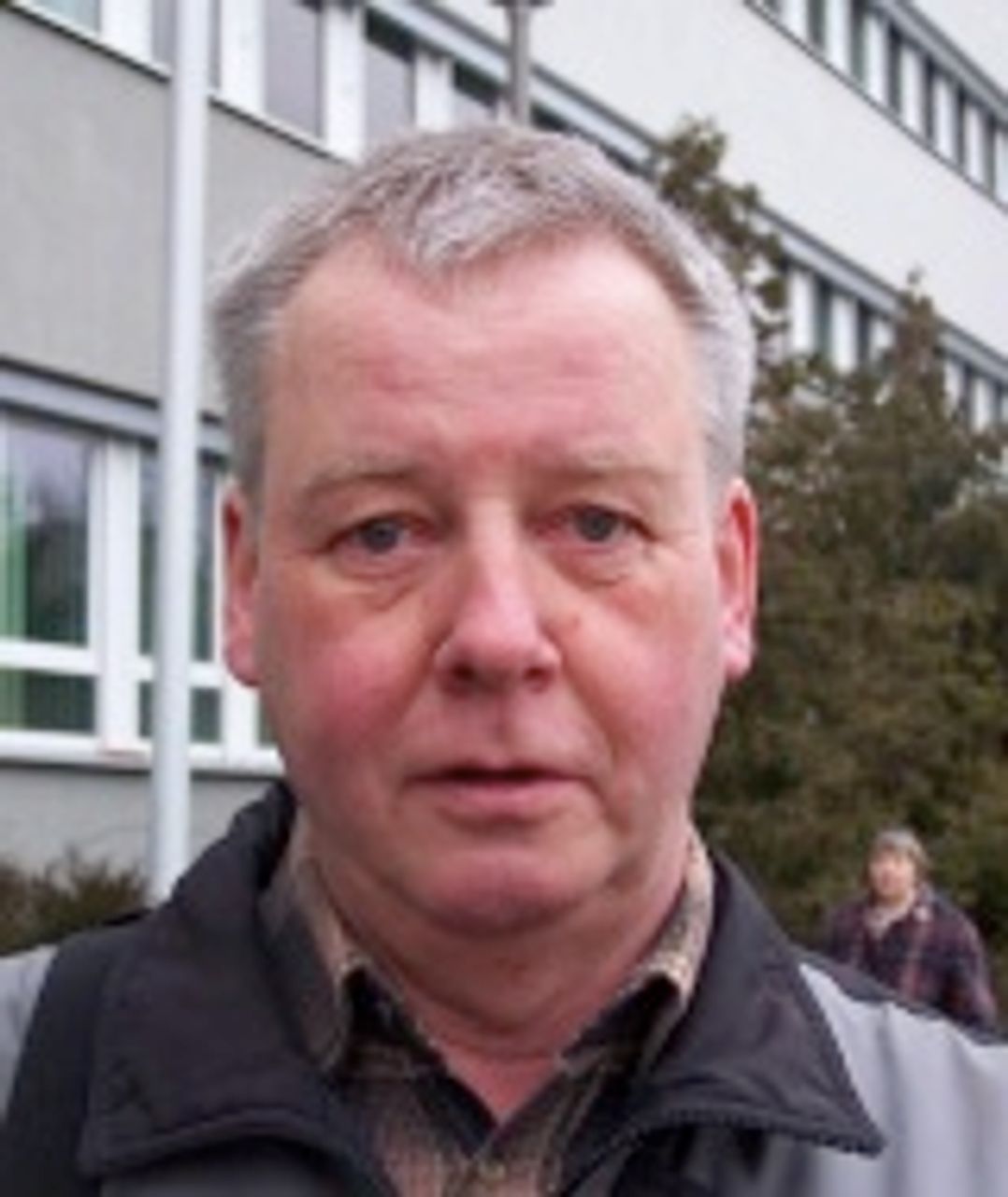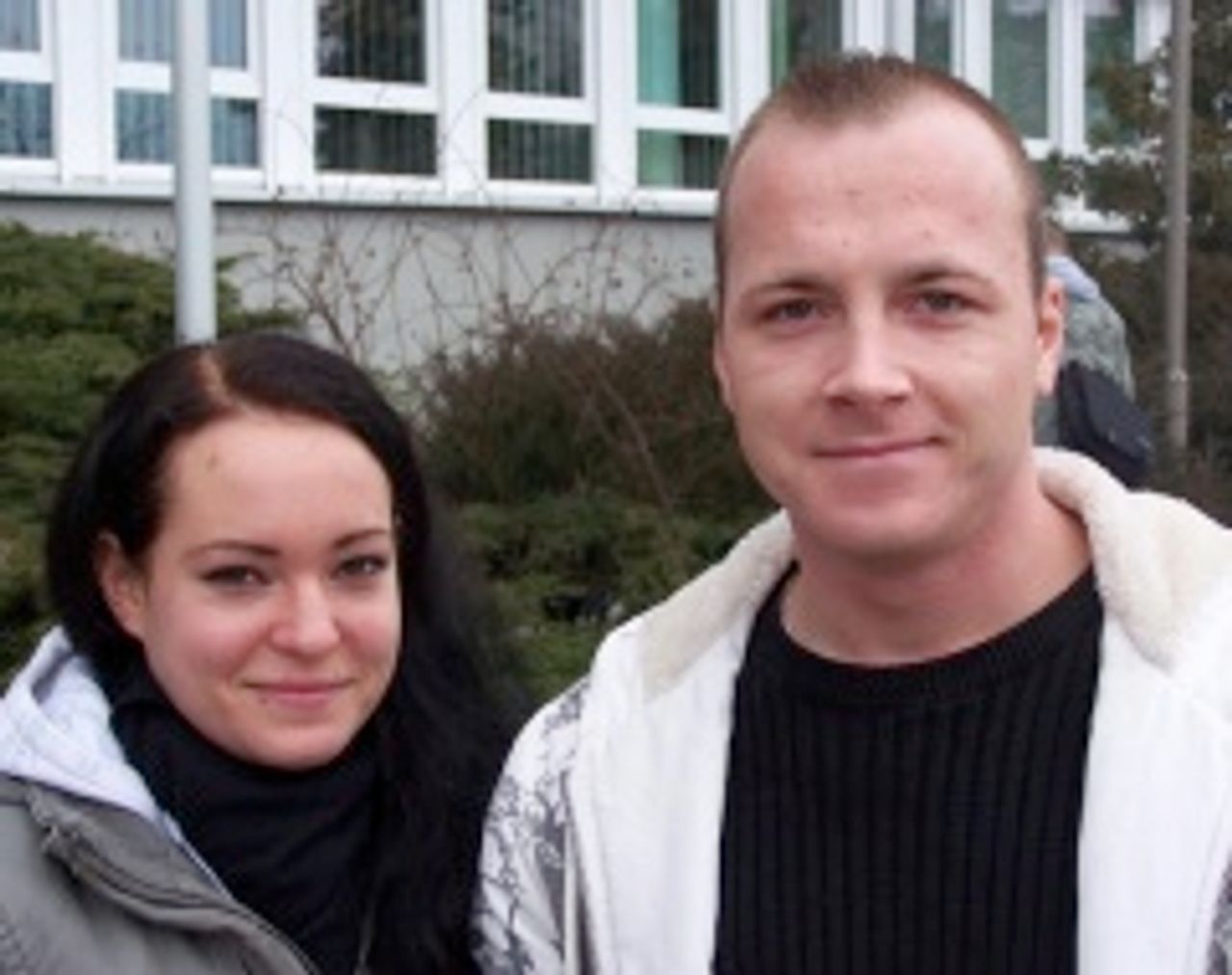For two weeks, supporters of the Partei für Soziale Gleichheit (PSG, Socialist Equality Party) have been collecting signatures to place the party on the ballot for the European elections in June. To gain ballot status, 4,200 valid signatures must be submitted to the federal returning officer.
The PSG is the only party that openly states that capitalism has failed and must be overcome by an independent movement of the working class. The party's election manifesto states: "Should the future of Europe be left in the hands of the financial aristocracy and its representatives in the European Union bureaucracy and existing European governments, then disaster is inevitable. It is time for workers to intervene in developments and take the fate of society into their own hands. This requires the building of a new party."
During the campaign, there have already been numerous discussions about this perspective, which has found a resonance among workers, youth and the unemployed. Confidence in official politics is evaporating, with increasing numbers expressing their anger with the present government. Few also trust the Left Party of Oskar Lafontaine to overcome the crisis in the interests of working people.
Signatures were collected in Bielefeld, particularly in the city centre and outside the employment office, where many people expressed their support for the PSG's campaign. Many reacted angrily to the enormous social inequality they were experiencing and most thought the real social effects of the financial and economic crisis were yet to come. There was general indignation that the government had handed over billions to the banks while "there is nothing for us."
An older construction worker leaving the employment office said, "I have just delivered the list of those on short-time working. There's nothing that can be done, we simply have no more orders."
Heinz Zimmer, 55, also worked in construction until recently. "I became unemployed on February 8 for the first time in my life," he said. "For 39 years, I worked as a bricklayer."
Since he recently turned 55, under the cutbacks in social provisions he will only receive unemployment benefits for 15 months instead of 18. "I've missed out by three weeks," he said bitterly. But he still expressed a certain confidence, "I have such experience, I always find another job. However, I can probably say goodbye to finding permanent employment. For the next 10 years I will probably have to start looking for work again each spring."
However, he thought the future prospects for younger people were much worse. "I have worked for 39 years, and naturally I have been able to save a little. But I just spoke with a young man in the corridor upstairs, who just goes from one job to the next or onto various government schemes. He usually gets paid an hourly rate of seven euros," Heinz said indignantly.
"The government says we should all take more responsibility for looking after ourselves. But how can young people on such wages put something aside, and especially if they have to provide for a wife and children too?" He added, "If you do put something aside and then lose your job, the employment office says after a year: ‘You must use up your savings before you can get any more from us.'"
The drastic cuts in support for the unemployed, particular for the long-term unemployed, already introduced under the previous Social Democratic Party-Green Party government of Gerhard Schröder, generally met with opposition.
The fact that workers need their own party, which represents their interests, is indisputable, and the perspective of the PSG to develop an international socialist party has met with support during the campaign. Working people in Germany know very well that GM boss Rick Wagoner is not sitting in the same boat as GM workers in Detroit; the workers in Detroit have the same interests as Opel workers in Europe.
 Alfonso Mella
Alfonso MellaAlfonso Mella, from Colombia, is presently a graduate student at the University of Bielefeld. He spoke about the need for an international perspective.
"The world as it presently exists is like organized crime," he said. "The current tensions between the Northern and Southern hemisphere, as well as in each country, reveal these crimes. Those few who have power—like the bank managers—determine the rules and never lose. It's always been like that, but the implosion of the American economy means everything is becoming even worse and more open.
"The Latin American countries are regarded only as sources of raw materials. The so-called development aid from Europe and the US are paid back twice and threefold; in reality, the countries of Africa, Latin America and parts of Asia are paying development aid to the European countries and the US.
"The world, as it presently is, should be destroyed. Most people have nothing to lose. Out of 40 million Columbians, 4 million are refugees in their own country. Over half live in extreme poverty. For these people, it will be very bad if things continue as they are. And these are only representative of the eight tenths of the world's population who are poor.
"Developments are also similar here in Europe and in Germany. The capitalists and governments who praised neo-liberalism for years are now saying that things cannot continue as they were before. And how do they react? With further cuts and redistributing billions to the banks. That is perverted.
"Every person has the responsibility to oppose this. But this must be coordinated internationally, so that the struggle of the working class in Europe is not at the expense of workers in the poor countries."
Alfonso agreed that workers need an independent party. "Workers and trade unionists are under great pressure in Colombia. It is dangerous there to stand up for your rights and interests. They are persecuted and oppressed. And what are the trade unions in the US doing, who cooperate closely with the Democrats? They are putting a stop to any aid, which is not in the interests of workers in Colombia."
In Berlin, reactions were very similar.
"Capitalism is completely bankrupt," was how Karin Schnabel put it. "Those at the top waste millions and those at the bottom are sacked. If things go according to the government, we are all to be made responsible for the crisis. An acquaintance of mine had to get a sick note on Thursday because of severe pneumonia. On Sunday, just four days later, they were given their notice and were dismissed. Such a thing should not be possible; after all, we're living in the 21st century."
Electrical mechanic Helmut Tyvakowski recently decided to take advantage of the so-called 58-plus regulation, enabling older workers to take a form of early retirement financed in part through unemployment benefits.
"I had just got ready to spending the last few years up to pension age," he reported, "but now the economic crisis has thrown a spanner in the works. From experience, I know that as a consequence of the economic crisis inflation will soon begin to rise and living conditions will worsen."
 Helmut Tyvakowski
Helmut TyvakowskiHelmut Tyvakowski said he had no confidence in the Left Party, which is in a coalition with the Social Democratic Party in the Berlin city government. "If you ask me about the establishment parties, they all just make promises. But when it comes down to it they all want the same."
As a former citizen of East Germany he sees historical parallels: "The situation reminds me increasingly of the June 17, 1953 uprising, in which my father participated. At that time, there were just a few who had any political understanding and knew what had to be done. The existence of many was threatened and many only knew a little. But all were agreed that things could not continue as they were. There we were all the same. That is how it is today again."
He considers a revolution today, a movement like that of June 17, as again necessary. What happened in 1989, when the Berlin Wall came down, was "not a revolution, it was a big movement that was then demobilized," he said.
Then Tyvakowski became somewhat thoughtful and said, "One should not fool oneself: after a world economic crisis a great war always followed. It won't be any different this time. Perhaps we are standing today on the edge of something even greater."
 Björn Junghauel with a friend
Björn Junghauel with a friendBjörn Junghauel, 25, had just been made redundant. He said he thought the building of a new workers' party was a very urgent matter: "It would have to fight for better wages and more rights for the workers. The rich should be taxed more and the burden lifted on the poor. We would have to mobilise enough people and organize them, then we could change things."
"For me, capitalism is no longer viable. What's being done now, are only short term solutions in order to save the banks and those at the top. No problem is being solved in the long-term."
The managers were responsible for the financial crisis, he continued. "They too should have to make do with a zero increase, like the pensioners. I think it's bad that we're being made to pay for it now. If a small debtor cannot pay, they are driven into ruin."
David Grosse is in his early twenties, and after losing his job was also briefly homeless. He accused official politics of varnishing over the crisis: "The current economic crisis will last at least five years. What we are being told is simply wrong. The establishment parties no longer have any idea what it means to be an ordinary person. Today, even if one has work, one's existence is no longer secure. I used to do really hard work in demolition, but still I had no money for the things that I wanted. It was just enough for meals and accommodation. I call that being a slave to luxury."
David thought the international unification of working people was an urgent necessity. If one thinks about the environmental catastrophe we face, "something like that can only be solved internationally," he said. "The rich and powerful take no responsibility. Capitalism does not represent human development, it offers no more progress. It seems to me, that we've made one step forwards and two back. The working class has an enormous voice, but it's a minority who govern here."
The campaign to collect signatures will continue for the next two weeks. In order to gather the necessary signatures, the PSG is relying on the help of all its supporters. For further information about how you can support the campaign, see here in German.
